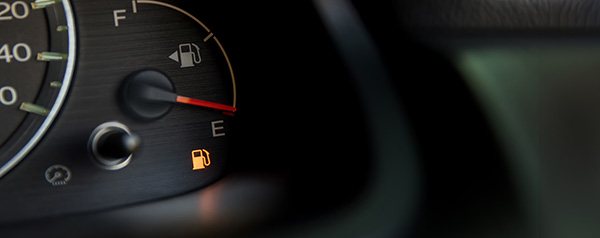
We’ve all been there—you’re driving along, glancing at the fuel gauge as it creeps closer to empty, thinking you can squeeze in a few more miles before filling up. But what happens when you push it a little too far, and your car actually runs out of gas? Besides the obvious inconvenience of being stranded on the side of the road, running out of fuel can have some serious consequences for your vehicle, especially your fuel pump. But what exactly happens to the fuel pump when your tank runs dry?
What Does the Fuel Pump Do
Before we get into what happens when you run out of gas, it’s important to understand the role of your car’s fuel pump. The fuel pump is an essential part of your vehicle’s fuel system. Its job is to move gasoline from the fuel tank to the engine at the right pressure, ensuring your car runs smoothly. Most modern vehicles have electric fuel pumps located inside the fuel tank, while some older models have mechanical fuel pumps mounted near the engine.
The fuel pump relies on the gasoline in the tank to keep it cool and lubricated. Without gasoline, the pump can overheat or become damaged, which could lead to expensive repairs down the line.
How Running Out of Gas Affects the Fuel Pump
When your car runs out of gas, the fuel pump is essentially starved of the gasoline it needs to function properly. This can cause several problems:
Overheating
The fuel pump relies on gasoline for cooling. When the tank is empty, the pump runs dry, and without fuel to cool it down, it can overheat. Over time, this overheating can cause significant damage to the pump, leading to failure.
Increased Wear and Tear
Running on empty means the fuel pump is working harder to pull any remaining fuel from the tank. This added strain can accelerate the wear and tear on the pump, reducing its lifespan and increasing the likelihood of breakdowns.
Debris in the Tank
Fuel tanks tend to collect dirt, debris, and sediment over time. When you run out of gas, the fuel pump may start drawing up dirt and sediment from the bottom of the tank, which can clog the fuel filter and damage the pump.
Air in the Fuel Lines
Running out of gas can also cause air to enter the fuel lines. When the fuel pump tries to push air instead of fuel through the system, it can lead to misfires or difficulty starting the engine even after refueling.
Signs of Fuel Pump Damage
If you've run out of gas recently or are worried about the health of your fuel pump, there are a few signs that might indicate damage:
- Difficulty starting the car: If your vehicle struggles to start or takes longer than usual to turn over, it could be a sign of a damaged fuel pump.
- Stalling: A damaged fuel pump might not be able to provide a steady flow of fuel to the engine, causing your car to stall, especially at high speeds.
- Noisy fuel pump: A whining or humming noise coming from your fuel tank could mean the pump is struggling to function properly, often due to wear or overheating.
- Loss of power: If your car loses power while accelerating or going uphill, it may indicate that the fuel pump is not delivering enough fuel to the engine.
What to Do If You Run Out of Gas
If you ever find yourself in the unfortunate position of running out of gas, here are a few things you can do to minimize the risk of damaging your fuel pump:
- Refill the tank as soon as possible: The faster you refuel, the better your chances of preventing damage. Try to carry a gas can or call roadside assistance if you’re far from a gas station.
- Prime the fuel system: Some vehicles have a process for priming the fuel system after running out of gas. Check your car’s owner manual for instructions on how to do this.
- Have the fuel pump inspected: After refueling, if you notice any issues, such as difficulty starting or unusual noises, it’s a good idea to have your fuel pump inspected by a professional.
Worried about your fuel pump? If you've run out of gas or suspect your fuel pump may be damaged, let the experts at Dave's Automotive take a look. We offer comprehensive inspections and repairs to keep your car running smoothly. Book your appointment today!